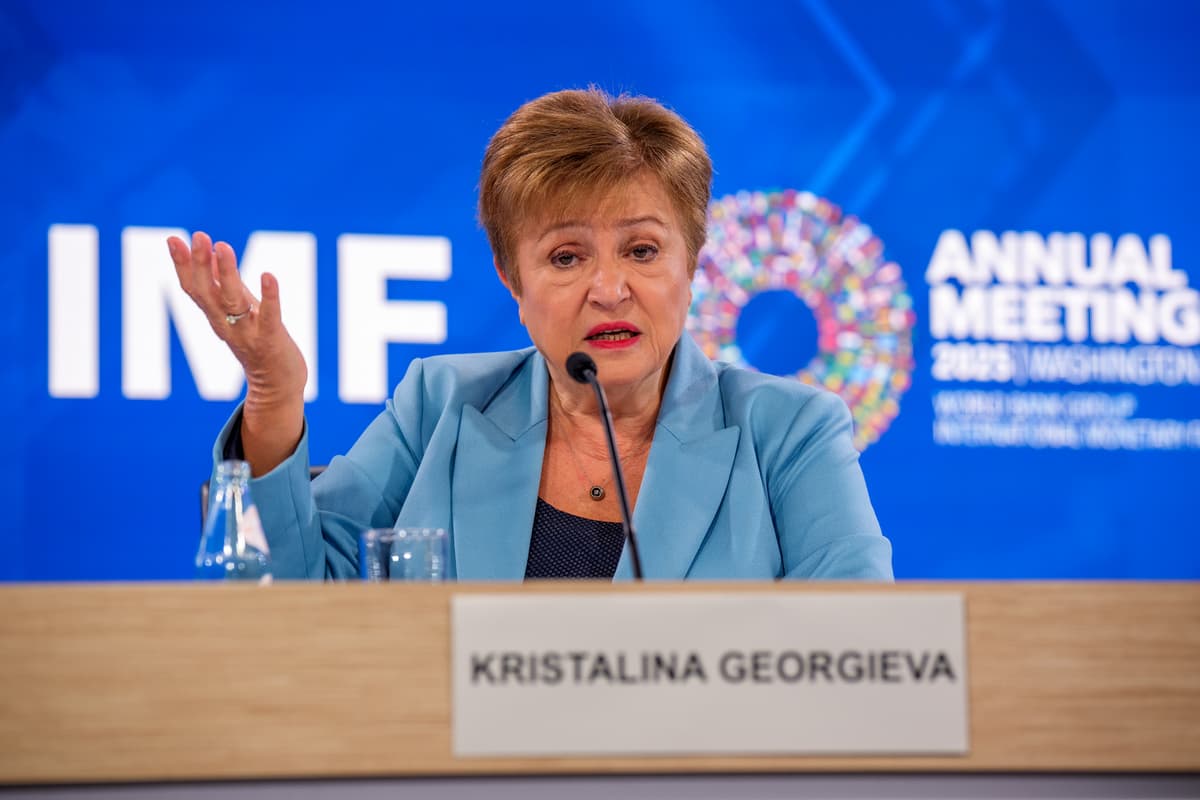Bessent Urges IMF and World Bank To Scale Back Aid to China
The World Bank Group is holding its annual meetings at Washington, D.C.

The secretary of the Treasury, Scott Bessent, is telling the International Monetary Fund and World Bank that it is time to scale back their financial support for China.
In a statement to the IMF’s steering committee, Mr. Bessent says it is time for the organizations to refocus on their core missions and that China should graduate from its development assistance program.
The international bodies, which are meeting at Washington, D.C., this week, should direct their staff and administrative resources to countries where development needs are more acute, Mr. Bessent says.
“The Bank must place a stronger priority on implementing its graduation policy, supporting countries along the way to self-reliance and enabling the Bank to concentrate its resources on poorer, less creditworthy countries where its support is most needed and most impactful,” he said.
Several conservative economists have argued that China, with the world’s second largest economy and huge sway over global markets, should lose its status with the World Bank and IMF as a developing country.
Defenders of the status quo point out that China’s per-capita income, estimated by the IMF at $13,136 last year, is still far below the $85,373 in America and lower even than Mexico’s.
The Trump administration sees China as a major economic competitor and is in a trade war with Beijing. Most recently, President Trump announced plans to impose an additional 100 percent tariff on Chinese goods as of November 1 in response to Beijing’s threat to restrict exports of rare metals.
Addressing the broader economy, the World Bank Group has revised its worldwide economic outlook modestly upward, but warns the world is still adjusting to a landscape reshaped by America’s tariff policies. The overall environment remains “volatile,” it says.
Mr. Bessent touted the Trump administration’s economic agenda, citing tax cuts, energy policy, and regulatory modernization. “They are interlocking parts of an engine designed to drive economic growth and domestic manufacturing.”
“The IMF is uniquely positioned to provide bilateral and multilateral economic surveillance that identifies imbalances and risks, facilitates the balanced growth of international trade, and discourages harmful policies,” Mr. Bessent said.
He said the World Bank also needed to focus on building supply chains for critical minerals that are essential for economic growth.
Mr. Bessent says it is time for the World Bank to refocus on investments that increase access to affordable and reliable energy, reduce poverty, and boost growth.
“We have been encouraging others to follow our lead and to take steps to increase economic growth,” Mr. Bessent said. “However, the growth outlook remains weak and unbalanced. Many countries continue to face ongoing regional conflicts, governance challenges, and other barriers to economic prosperity such as overregulation.”
The Treasury secretary urged the World Bank to shift away from climate and gender concerns and concentrate more on overall growth, noting that the IMF is already folding its climate and gender units into one that is focused on macro-financial and structural policies.
“The IMF and World Bank must take more concerted steps to focus on their respective core missions and deliver greater impact to the countries they support and greater value to taxpayers from the United States and other shareholders,” Mr. Bessent said.
